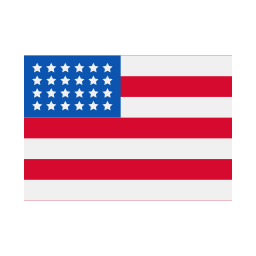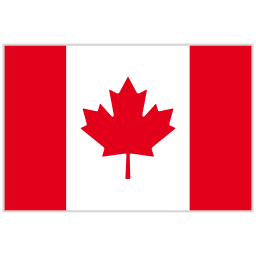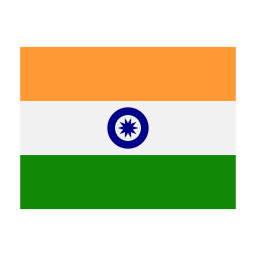BOTSWANA – GENERAL INFORMATION
GEOGRAPHY
Twice the size of Arizona, Botswana is in south-central Africa, bounded by Namibia, Zambia, Zimbabwe, and South Africa. Most of the country is near-desert, with the Kalahari occupying the western part of the country. The eastern part is hilly, with salt lakes in the north.
HISTORY
It is commonly believed that the oldest inhabitants of Botswana were the San people or Bushmen, who have lived there for at least 30,000 years. The pastoral Khoi Khoi and Bantu groups settled there later, many of them concentrated along the Chobe River.

The various Bantu groups, including the Tswana, co-existed peacefully in different parts of the Kalahari until the 18th century. In this vast land, arguments were solved with reasonable ease. If someone didn’t agree with the predominant group, they simply gathered their people and tramped off to build a settlement elsewhere.
However, this idyllic situation could hardly last forever. By 1800, the grazing lands had been claimed and fragmentation was no longer a viable way of resolving conflicts. To make matters worse. Europeans had arrived in the Cape and were expanding northward. Realizing their vulnerability, the scattered Tswana villages regrouped and formed a highly structured society. Each Tswana nation was ruled by a hereditary monarch and subjects lived in centralized towns and satellite villages. The Christian missionaries who arrived around this time were impressed by the Tswana way of life and did not manage to convert great numbers.
During the same time, the Boers crossed into Botswana and Zulu territory and tried to impose their rule over them. Many Botswana started working on Boer farms but it was an uneasy association often plagued by revolt and violence. By 1877, animosity had escalated and the British decided to annex the Transvaal. Continuing attacks by the Boers drove the Botswana to ask again for British protection again in 1882. Thus, lands south of the Molopo River became the British Crown Colony of Bechuanaland, while the northern area became the British Protectorate of Bechuanaland (which is now Botswana). Britain governed Botswana until 1966 when they finally released their grip, giving in to the nationalist movement that had started in the 50s. On 30 September 1966, the Republic of Botswana gained independence.
Post independence, Botswana’s most fortunate discovery was that of diamonds near Orapa in 1967. This mineral wealth led to enormous foreign currency reserves and made the Botswanian pula Africa’s strongest currency.
THE PEOPLE
The population of Botswana is made up of people from about 20 different tribes, some of which came originally from Botswana’s neighboring countries: South Africa, Zimbabwe, Zambia, Angola and Namibia. However, most are originally of the Tswana people. Through the centuries, as people of the different tribes joined, they shared many of their customs. Today, all of these different customs and beliefs help make up the culture of Botswana, as well as influences from non-African places because Botswana today is a modern country. The people of Tswana origin and also the citizens of the country are called Batswana or Motswana. The language of Botswana is Setswana, and the word is also used to describe the way of life.
SOCIAL CONVENTIONS
As most people in Botswana follow their traditional pattern of life, visitors should be sensitive to customs which will inevitably be unfamiliar to them. Outside urban areas and safari destinations, people may well not be used to visitors. Casual clothing is acceptable and, in urban centers, normal courtesies should be observed.
LANGUAGES
English is the official language. Setswana is the national language.
GOVERNMENT
Botswana has a flourishing multiparty constitutional democracy. General elections are held every 5 years. Each of the elections since independence has been freely and fairly contested and has been held on schedule. The country’s minority groups participate freely in the political process. The openness of the country’s political system has been a significant factor in Botswana’s stability and economic growth.
TIME ZONE
Botswana is GMT + 2.
ELECTRICITY
220-240 volts AC, 50Hz. 15- and 13-amp plug sockets are in use.
CLIMATE
The rainy season in Botswana occurs mostly during summer months. The season begins in November, peaks in January and ends in March. Rainfalls are, however, erratic, and unpredictable. The average annual rainfall varies from about 650mm in the extreme northeast to less than 250mm in the extreme southeast. Summer begins in November and ends in March, and can be extremely hot, with day temperatures sometimes soaring up as high as 111ºF. Winter days are invariably sunny and cool to warm. Temperatures in the evenings drop low and can reach a freezing point in some areas. Extreme nighttime temperatures can go as low as 52ºF. Winter begins in the month of May and ends in August.
Clothes to Wear:
Convertible slacks (with a zipper to turn slacks into shorts) and long-sleeved shirts are ideal, with other layers to shed as the day heats up. A hat with a brim is essential, plus sunscreen and sunglasses. Pale earth colors such as tan or olive are best for viewing wildlife and birds, but military camouflage clothes are illegal in many African countries. Comfortable walking shoes, such as topsiders or running/tennis shoes with socks are recommended over sandals; thorns are everywhere, and socks with your shoes deter mosquito bites. Include a lightweight raincoat or jacket, and a swimsuit (many camps have pools). You may want to take a light robe, plus rubber flip flops. If traveling in the winter months, the early mornings and late evenings can be quite cold. For this reason, it may be essential to bring a warm jacket and even a scarf or gloves.
LOGISTICAL
Entry & Exit Requirements:
Each visitor to Botswana is required to pay a one-time entry levy of USD 30.00. The levy is payable at all ports of entry including airports and border posts, starting 1st June 2017. Payments are done at the ports of entry through electronic payment machines through cash (US Dollars), debit and credit card. After the payment, a receipt corresponding to the passport will be automatically generated. The receipt should then be presented to Immigration Officials. The passport and the receipt will be stamped and handed back to the traveler. The receipt will be valid for a 30 day period and can be used for multiple entries.
A passport with at least six months of validity remaining is required. U.S. citizens are permitted stays up to 90 days total within a 12 month period without a visa. For additional information on entry requirements, travelers may contact the Embassy of the Republic of Botswana, 1531-1533 New Hampshire Avenue NW, Washington, DC 20036. Tel: (202) 244-4990/1.
Fax: (202) 244-4164. Or the Permanent Mission of the Republic of Botswana to the United Nations, 103 E. 37th St., New York, NY, 10016. Tel: (212) 889-2277. Fax: (212) 725-5061. There are also honorary consuls in Los Angeles, San Francisco and Houston. Visit the Embassy of Botswana’s web site for the most current visa information. As a general precaution, all travelers are advised to carry a photocopy of the photo/bio information page of their passport and keep it in a location separate from the passport.
Botswana rules on minors entering the country:
Parents traveling with children under 18 years old will now be required to provide an unabridged birth certificate of all traveling children. This applies even when both parents are traveling with their children. When children are traveling with guardians, these adults are required to produce affidavits from parents proving permission for the children to travel. For complete information, please contact the Botswana Embassy at phone: 202-244-4990. Email: info@botswanaembassy.org
U.S. citizens living or traveling in Botswana are encouraged to register with the nearest U.S. embassy or consulate at the Department of State’s travel registration page in order to obtain updated information on local travel and security. U.S. citizens without Internet access may register directly with the nearest U.S. embassy or consulate. Registration is important; it allows the State Department to assist U.S. citizens in an emergency.
Embassy Locations:
Embassy Drive in the Government Enclave
Gaborone, Botswana
Tel: +267 395-3982
After-hours Emergency Tel:
+267 395-7111
Fax +267 318-0232
https://bw.usembassy.gov/
Canadian Embassy in Botswana
Vision Hire Building, Queens Road
Plot 182, Gaborone
Tel: (267) 390-4411
Fax: (267) 390-4411
http://www.canadainternational.gc.ca/zimbabwe/index.aspx
HEALTH
Information on vaccinations and other health precautions, such as safe food and water precautions and insect bite protection, may be obtained from the Centers for Disease Control and Prevention’s (CDC) hotline for international travelers at 1-800-CDC-INFO (1-800-232-4636) or via the CDC website at http://wwwnc.cdc.gov/travel. For information about outbreaks of infectious diseases abroad, consult the infectious diseases section of the World Health Organization (WHO) website at http://www.who.int/topics/infectious_ diseases/en/. The WHO website also contains additional health information for travelers, including detailed country-specific health information.
You are also encouraged to consult with your own doctor and health network, some of which operate travel clinics as part of their services.
BANKING & CURRENCY EXCHANGE
The unit of currency is the Pula. Notes are in P10, P20, P50, P100 and R200. Coins (Thebe) are in denominations of t5, t10, t25, t50, Pl, P2 & P5.
Any amount of currency may be imported into Botswana as long as it is declared. On leaving Botswana P50 in cash may be exported. All other currencies may be imported and exported up to the amounts declared. Money should be exchanged in banks at market rates. Due to limited facilities in small villages, it is advisable to change money at the airport or in major towns. Most hotels and lodges will accept foreign currency. MasterCard, American Express, Diners Club and Visa are accepted on a limited basis. Check with your credit card company for details of merchant acceptability and other services, which may be available.
Bank hours are 0900-1530 Monday to Friday and 0815-1045 Saturday.
COMMUNICATION
Country code: 267. There are very few public phone boxes.
Mobile Telephone: Roaming agreements exist with international mobile phone companies. Coverage is average.
Internet: Available in large cities and resorts.
Post: There are post offices in all towns and the larger villages. Airmail service to Europe takes from one to three weeks. Post office hours: Mon-Fri 08:15am-12:45pm and 2pm-4pm; Sat 8am-11am.
Cell Phone Usage:
Please contact your cell phone provider to determine whether your contract includes coverage in the country you are visiting. Depending on your contract you may have to add international services and/or country specific services.
ENTERTAINMENT
Food & Drink:
A large amount of beef is produced in Botswana. Lamb, mutton, free-range chicken and a large selection of venison – including crocodile – are plentiful. While Gaberone has a wide variety of restaurants featuring most of the prominent cuisine varieties of the world, some of the more traditional restaurants are said to serve some of the best oxtail in the world. For the more adventurous, serobe is the gastronomic equivalent to bungee jumping. The intestines and some inside parts of goat or sheep are cooked until tender — sometimes even the trotters are included.
The more faint hearted can always try seswaa. Also known as chotlho in certain regions, seswaa is a very popular traditional meat dish made for special occasions. Traditionally cooked in a black three-legged cast iron pot and simmered for hours until soft, goat meat is prepared with nothing more than salt and water. It is often eaten with bogobe (porridge) made by putting sorghum, maize or millet flour into boiling water stirred into a paste.
With an inappropriate American name, the locally mass-produced St. Louis Lager is very popular and of good quality. Traditional beers called khadi or bojalwa tastes like bitter apple cider. Beware: It carries a strong punch and a hangover is guaranteed. Good South African wines are available in most restaurants and shops.
Nightlife:
Botswana has its own set of establishments that can also offer the same fun as that of bars, clubs, and discos in the west. However, the best night activity a tourist may do in Botswana is not at all relative to these joints. Nights in Botswana are best spent outside, through an evening safari, or camp out.
There are hides available in the different areas where animals abound. Travelers may opt to stay up until dawn in these hides just listening and watching nocturnal animals move around. One of the most popular hides in the country is the Bird Hide in Dombo Hippo Pool. Another night activity that tourists may do in Botswana is camping outside, watching the dim sky, enjoying the bushvelds, and feeling like someone lost in the desert. Travelers may closely observe small creatures through this activity. Plus, this is definitely cheaper than drinking and dancing all night in a bar.
Shopping:
Shopping hours are 08:30am-1pm and 2pm-5pm Monday through Friday, 08:30am-1pm Saturday.
Local products of special interest to visitors are copperware, animal hides and leather goods, pottery, paintings and sculpture, hand-woven fabrics and tapestries, curios and hand-crafted artifacts. For the best selections, it is advisable to try to buy directly from the workshops or craftspeople as the prime pieces are usually exported. Botswana is known for its beautiful baskets, traditionally made by the Hambukushnu, which can be bought from curio shops in Maun, Kasane, Francistown and Gaberone, from the lodges or from street vendors at Shorobe (en route to Moremi) and Etsha (en route to Shakawe). A different style of basket is woven at Shashe (near Francistown) and Nxamasere (en route to Shakawe). Hambukushu crafts include functional forged tools such as adzes and knives, drums, ceremonial wigs, bracelets, necklaces and handbags.
Traditional San crafts and artifacts are available from most curio shops, or from Ghanzi, or directly from the San around Dobe and Xai-Xai (western Kalahari). Typically you can buy bracelets made of wildebeest tail, ostrich eggshell beads and headbands, loin aprons and initiation necklaces for the ladies, and hunting sets, snares, knives and smoking pipes for the men.
Of the Herero crafts, dolls, which depict different stages of life, are very popular. Other crafts are typical of their pastoral life and include items such as sour milk containers and small containers with a mixture of ochre, fat and sweet-smelling herbs for women.
Wooden carvings such as the kgotla, a light-weight folding chair with leather thong seat, human and animal forms and bangles, may be bought from Dukwe and Mosetse (between Nata and Francistown), Thamaga in the south-east and Shashe near Francistown. Leatherwork is obtainable from Maun, Francistown and Mochudi (near Gaberone) and Dekar (near Ghanzi). Rugs, bed-spreads, tapestries, table runners and mats, wall hangings and blankets are obtainable from Tiro ya Diatla and Lentswe la Oodi at Odi, 11 miles north of Gaberone. Pottery is available from Gaberone and Gabane. Silk-screened fabrics such as tablecloths, cushion covers and T-shirts are available from Mochudi.
The Veterinary Department, who will also issue a permit for the object, must register any artifacts or crafts made from animal products (trophies, animal skins, ostrich eggshells, feathers, etc.). Every town and village has a veterinary office where you should be able to obtain a permit. Objects bought from retail or wholesale outlets in the major centers will have been registered already.
BAGGAGE
Baggage rules for international and domestic air travel have changed much in recent years, differ from carrier to carrier and these days even may cover your on-board bags. Checking luggage may cost a separate fee or may be free depending on your personal status with the carrier. We therefore encourage you to read your ticket’s small print and/or contact your carrier for exact rules.
For tours that include light aircraft transfers and/or charter flights there is a maximum weight allowance of 33-44 lbs. per person. Soft-sided luggage is required and strict limitations are imposed. Preferably, travel light, if possible. If not, it is recommended to include a soft-sided bag inside your regular luggage to carry this allowable weight. For overland tours, space for luggage in safari vehicles is limited. Extra baggage will be stored wherever possible (additional charges may apply, please request information from your sales consultant).
TIPPING
Recommend $10-$15 per person per day for your safari guide.
And $5-$10 per person per day for the camp/lodge staff (includes bartenders, waiters/ waitresses and housekeepers). For merkoro polers we recommend $10 per person per trip.
LAUNDRY
Generally in the luxury safari camps, laundry service is included. Generally you should allow about 24-hours before the item is returned to you.
PHOTOS & VIDEOS
You will find incredible photographic opportunities on your safari. Please be courteous when taking pictures of the local people. In some countries you must refrain from photographing sites such as Military bases and industrial installations. Also be aware of cultural sensitivities when taking pictures of or near churches and other religious sites.
USE OF DRONES
The use of drones is being legislated by many countries. In some cases drones are already forbidden and their unauthorized use may carry severe penalties. If you plan to travel with a drone please contact the embassy or consulate of the country you wish to visit.




